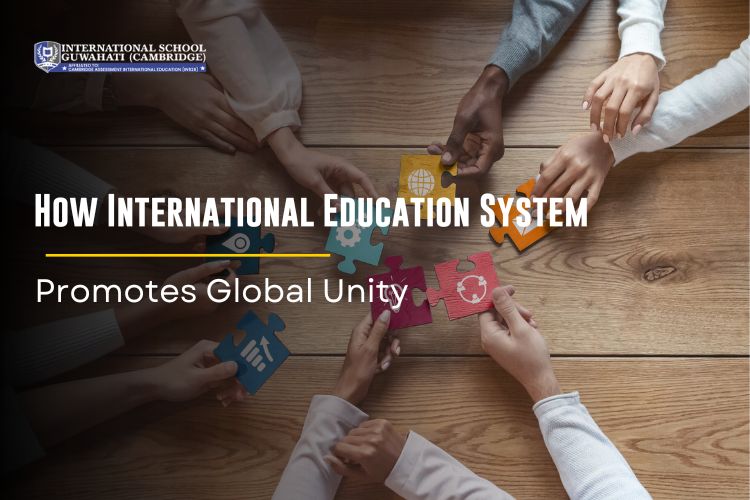![]()
In an era of globalization, fostering global unity and understanding has become increasingly vital. One powerful medium for achieving this is through an international education system. Therefore, in this blog piece, we will discuss the various factors of an international education board that support and effectively promote global unity.
Why is an International Education System Necessary Today?

An international education system is crucial because it prepares individuals to thrive in a globalized world, promotes cross-cultural understanding, enhances communication skills, enables global problem solving, creates economic opportunities, and contributes to peace and diplomacy.
Globalization:
In today’s interconnected world, globalization has made it essential to understand and engage with people from different cultures and backgrounds. An international education system equips individuals with the skills, knowledge, and experiences necessary to thrive in a globalized society and navigate intercultural interactions effectively.
Global Problem Solving:
Many of the challenges we face today, such as climate change, poverty, and global health crises, require global solutions. An international education system prepares students to tackle these complex issues by providing them with a broader understanding of global interconnectedness.
Peace and Diplomacy
Education is a powerful tool for peacebuilding and conflict resolution. An international education system promotes understanding, dialogue, and cooperation between nations, which can help prevent misunderstandings, conflicts, and promote peaceful coexistence.
Also Read: The Unavoidable Role of Education in Promoting Global Peace.
Promoting Global Unity

Cultural Exchange:
International education systems provide students with invaluable opportunities to interact with peers from diverse cultural backgrounds. Through studying and collaborating with students from different countries, individuals gain exposure to a variety of perspectives, traditions, and ways of life. This exposure fosters a sense of appreciation and respect for different cultures. It also helps in breaking down stereotypes and biases that can hinder global unity.
Language Acquisition:
Language is an essential tool for effective communication and understanding. International education systems often prioritize the teaching of multiple languages. This enables students to communicate with people from different countries and cultures. By bridging language barriers, students become equipped to engage in meaningful intercultural dialogues, promoting global unity.
Interdisciplinary Curriculum:
An international education system typically incorporates a diverse range of subjects and perspectives from various countries and cultures. This interdisciplinary approach exposes students to different ways of thinking, problem-solving, and understanding the world. By broadening their knowledge base, students become more open-minded and adaptable. Hence, promoting global unity through the exchange of ideas and experiences.
Global Citizenship:
International boards in India often emphasize the concept of global citizenship, encouraging students to consider their role as active participants in a global society. By teaching values such as empathy, cooperation, and respect for human rights, these systems cultivate a sense of responsibility towards the global community. Students are motivated to tackle global challenges, collaborate across borders, and work towards a more equitable and sustainable world.
Study Abroad Programs:
International education systems frequently offer study abroad programs, enabling students to immerse themselves in foreign cultures and education systems. Living and studying in another country provides a firsthand experience of different lifestyles, customs, and educational approaches. This experiential learning enhances empathy, expands cultural awareness, and promotes global understanding, ultimately fostering global unity.
Bottom Line
An international education system serves as a powerful catalyst for promoting global unity. I works by facilitating cultural exchange, nurturing empathy, and cultivating global citizenship. It equips students with the necessary tools and perspectives to understand, appreciate, and work collaboratively with diverse cultures and communities worldwide. By embracing an international education system, we can create a generation of global citizens who work towards a more inclusive and harmonious world.
Also Read: 10 Amazing Benefits of Learning a Foreign Language.










